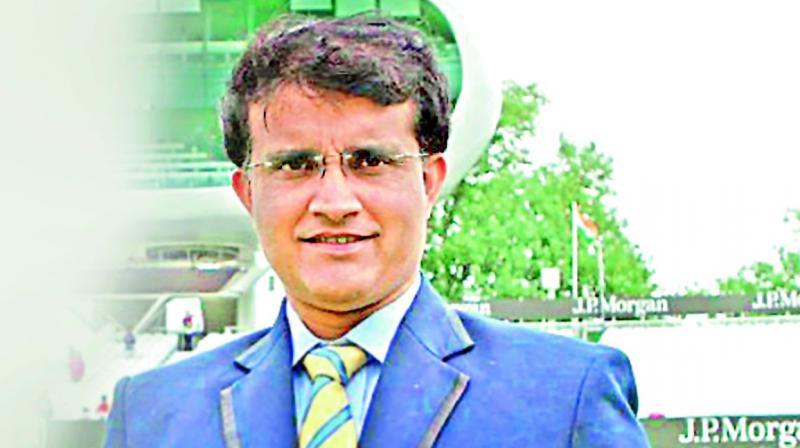Sourav Ganguly has to work at breakneck speed

More than 30 months after Justice RM Lodha dissolved the BCCI, Indian cricket's administrative body will be reconstituted next week. Hectic parleys and negotiations cleared the way for the Committee Of Administrators (COA) that had been minding the store in the interim to be finally disbanded.
In itself, the COA ceasing to exist is a relief to all concerned. The original time frame to implement the Lodha Committee recommendations was 6-8 months. This not only stretched more than two years beyond, but the COA’s conduct — locked in several battles, external and internecine — ended up marring Indian cricket’s reputation further.
Yet, whether Justice Lodha would be entirely pleased at the way things have panned out is moot. Most members of the emerging BCCI have been chosen unopposed. This makes the democratic processes of the organisation less robust than is perhaps needed.
But even more, it is the people who have been selected that may make Justice Lodha squirm. Most new office bearers are dynasts: new faces with old affiliations. The very people that the Lodha Committee had put out of administration have technically surmounted the hurdles and can now pull strings, albeit from behind the curtain.
That said, there have been two redeeming developments: the Indian Cricketers Association (ICA) being formed and second, Sourav Ganguly’s elevation as BCCI president. I’ll leave discussion on the ICA for another day and focus on Ganguly here.
Even though his tenure will be brief - 10-months odd, followed by a three-year cooling off period - it carries significance going ahead. The Lodha Committee had advocated strongly that former players should be encouraged to get into administration. There can’t be a more visible and accomplished face as president than Ganguly.
His vast playing experience is supplemented by experience in administration in the past 4-5 years, first as secretary and later president of the Cricket Association of Bengal. He is young (47), understands the modern game, has served on technical committees of the ICC and does not hesitate to speak his mind.
There has been wide conjecture about the role of national politics in Ganguly’s elevation. That key people met with Home Minister Amit Shah before the various positions were finalised, including the last-minute switch from Brijesh Patel to Ganguly as president, is seen as telltale by many observers.
For the record, national politics has always played a role in Indian cricket, so Amit Shah’s intervention is hardly new. What is now evident is that the ruling political dispensation has now taken a dominant position in cricket administration too.
Ganguly has pooh-poohed suggestions that politics was even discussed in his meeting with Amit Shah though it would be naive to believe that the country’s second most powerful man would not have political gain in his calculations when meeting administrators of the nation’s biggest sport.
Whether Ganguly is at all interested in politics, and if so in which direction he will move, will be a matter of intrigue, suspense and speculation for the next few years. Meanwhile, he has his plate full as BCCI president.
In press conferences and informal talks, he has spelt out some priority areas. Some may not produce tangible results in the short-term (e.g. winning ICC tournaments, for the next one due is late 2020, the T20 World Championship), or battling with the ICC for a more rewarding Future Tours Program.
But some are eminently doable immediately. Like making policies — in conjunction with the ICA — on improving the lot of cricketers, current and former. Also, giving pink-ball cricket the green signal, as he has already suggested. For some obscure reason, this was put on the backburner.
Apart from playing day-night Tests in Australia, Ganguly must push for these in India too considering the paltry attendances seen in the recent series against South Africa.
I would also like to see him take an immediate and stringent position on corruption (domestic leagues like TNPL and KPL have been hit too), as well as the menace of age-fudging which his former team mater Rahul Dravid has highlighted.
Because of a restricted tenure, he has to work at breakneck speed to make impact. At the best of times, the BCCI administration could be painfully slow.
Ganguly will have to inject some ‘T20’ tempo into the system.

